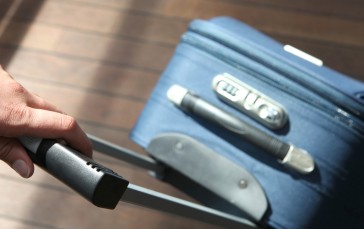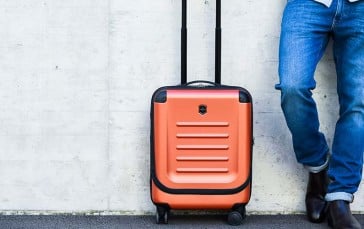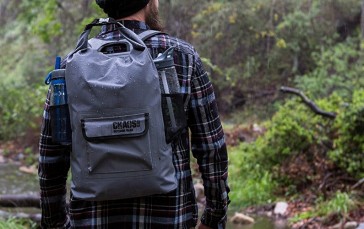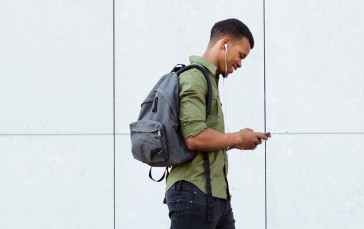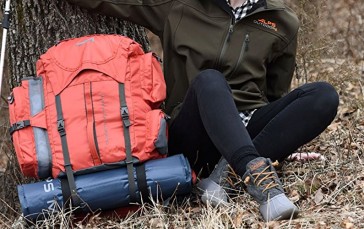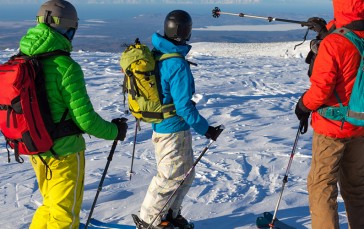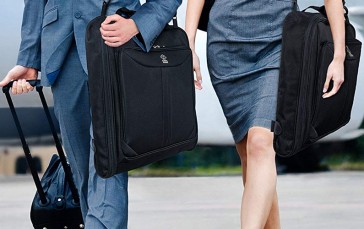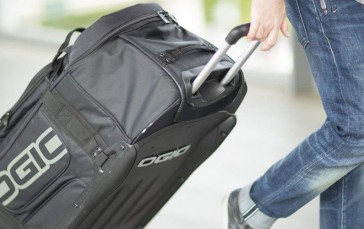Travel Safety Tips
There are always risks when traveling, even if it just down the road to the store, but there are some places that are more dangerous to travel in than others. Reasons vary but include political unrest, gangs and crime, the terrain or the climate. But you can mitigate the risks by thinking ahead and staying aware of your surroundings and the people in it and taking some common sense precautions. Sometimes, simply using durable and well-protected travel backpacks or carrying an RFID wallet can significantly increase your safety and keep your belongings secure.

1. Meticulously Plan the Route
Proper route planning is essential for a safe travel without any hiccups and disasters. It might mean having to spend some extra time or money, but in the end, your safety is more important than anything else.
Before deciding on the route, do some research. Look into local conditions and the area around the route, and if possible check travel advisories and embassy websites for any warnings or potential issues. Read local news reports of your destination and look for any ongoing issues, such as political protests that may cause problems. Talk to reliable people who are living there or have been.
Above all, ask relevant questions that will allow you to accurately assess the risk areas to be avoided. Are there any particular groups targeted such as rental cars? Are stones thrown at vehicles going to or from a particular place? Are there incidences of roadblocks or abductions for some personal gains? Answers to these questions will help keep you and your luggage safe while traveling in those areas.
2. Prepare Well
Prepare a proper, workable and practical plan. Make it realistic but don’t over complicate things or else you will take the fun out of your trip. A good way is to create an equipment tick list and include on it all the essentials, a medical kit, a car tire puncture repair aerosol, radiator repair kit and water. Above all, you should choose your destination wisely and making sure you know the risks involved. Here are some tips to remember:
- If you are traveling through areas of political instability, check for volatile high-risk areas and plan your route to avoid them completely.
- Decide if such things as the weather and road conditions are suitable for your vehicle and that fuel is available regularly along the route.
- Take into consideration the needs of traveling companions to plan in rest breaks and stopovers.
- Once you decide on the place, find out if the risks involved have a solution and can be taken care of. For example, if you are traveling to a country with a lot of mosquitoes, pack a mosquito net, good quality repellants and an anti-malarial kit. Make sure your vaccinations are updated and get any you need at least a month in advance as a precaution.
These are the major considerations but there are a few other important things like an itinerary that is known to someone else with whom you have agreed on check-in times. Similarly, you should find a way to safely carry your travel insurance, travel documents with at least 3 extra copies and a ‘life-saver’ bag to carry all your important documents and cash you cannot lose at any cost.
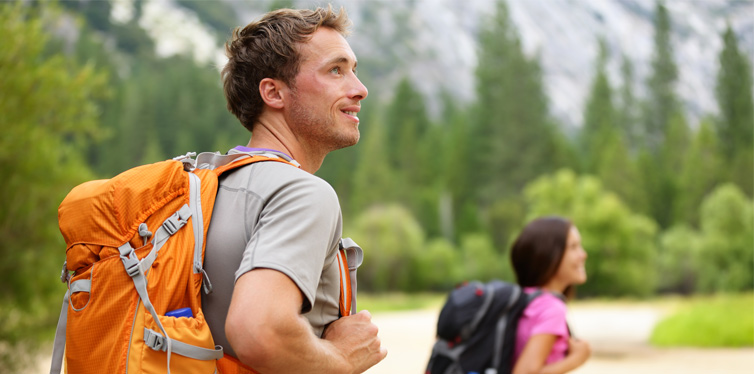
3. Show That You are Bold and Confident
Traveling in a large group is always safer but if you are alone and facing an antagonist, even if you are a quivering mess inside, don’t show it. Look like you are a strong person used to taking no hassle from anyone. Most adversaries will think twice. Keep the following in mind too:
- Avoid becoming a target carrying a lot of cash or costly looking items such as watches or jewelry.
- Never walk about with your phone in hand or leave out on a restaurant table. Keep it hidden out of sight in your pocket but handy in case you need it in a hurry.
- Don’t be an attention seeker and invite curiosity. Just keep yourself to yourself and enjoy the place without any unnecessary interactions.
4. Keep your luggage safe and sound
Know what is in your bags and where, especially if you are traveling across a border, taking long-distance flights or passing through customs. They have strict rules and have to apply them to everyone. Not having a document to hand invites suspicion. It seems heartless, but don’t try to help any seemingly innocent person by carrying their luggage. That might just be the trap that can get you jailed for years.
In the same vein, keep your luggage with you all the time and even if someone offers to help, politely refuse. Take only what is essential, and understand that less luggage means fewer problems. It is easier to move around and keep track of what is yours, especially when you are going to multiple locations.
Make use of the special ‘TSA’ compatible locks required by the US. Officers are able to open your luggage if they need to, using a master key, but no one else can. If officers do need to open your bags, your lock will not stop them and you will be left with unsecured luggage and at risk from airport theft. Similarly, you may feel well protected by using Victorinox luggage.
A great option to organize luggage and maximize its capacity is to use vacuum packing cubes. You can use packing cubes to keep your toiletries, travel camera gear, shoes, electronics and anything else, locked away and safe not on show in a holdall.

5. Know How to Behave When Things Go Wrong
While your plan might be to completely avoid any dangerous areas, you never know when danger might come and find you. Be danger aware at all times, even in places that seem secure. You might need to take a night walk from your accommodation to a restaurant but know walking at night can be risky. Have a plan to defend yourself if you need to and carry a pepper spray or personal alarm. Being aware and being armed is a quick self-help mechanism especially for women, who appear soft targets for perpetrators of crime.
6. Mislead Others to Protect Yourself
Sometimes, people watch your movements to know if you are a person worth robbing. Even if you stay on high alert and are fully aware of the people around you, it is not possible to keep a check on each and every person all the time. The best idea is to be prepared to use deception by keeping two separate travel wallets. Have all the important things in one wallet, your passport, ID card, cash, credit or debit cards, hidden away.
Use the second wallet regularly keeping only a small amount of money in it for your immediate purchases. Try to use only smaller notes and change when paying. People notice high-value currency. Small notes are usual and using them will reduce the risk of an attack from someone who thinks you are carrying a large amount of cash.
The fact of the matter is that though you can try many ways to be safe while traveling in dangerous places, it all comes down to using your common sense and have situational awareness. When done safely, traveling to different places can benefit you in more ways than you can imagine, but you have to be extra careful when you’re in a place that has a bad reputation for being unsafe. Safety comes first, so don’t try to be unnecessarily adventurous and travel safe!


